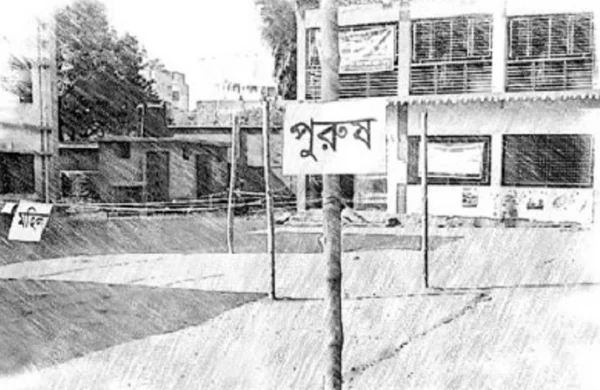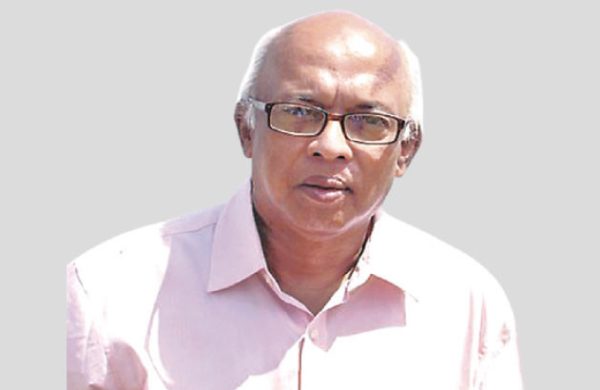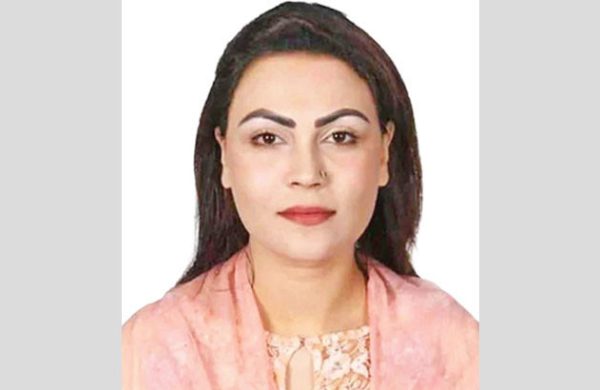DWINDLING VOTER TURNOUT: A CAUSE FOR CONCERN
- Update Time : Thursday, May 30, 2024

——–Dr Pranab Kumar Panday——
The second phase of the Upazila Parishad election took place on May 21st, covering 156 Upazila Parishads. Nevertheless, the voter turnout in the second phase was lower in comparison to the first phase, with around 30% of voters exercising their right to vote. The decrease in voter participation is discouraging for our democratic system, as voters play a crucial role in its operation.
Hence, the inquiry arises as to why voters persist in abstaining from engaging in the election process.
Multiple factors might have impacted the reduced voter turnout rate in this election. Initially, the official abstention by a political opposition party might have affected voter engagement. It is important to mention that despite the boycott, a substantial number of candidates from the Bangladesh Nationalist Party (BNP) participated in both phases of the election, and some of them even won.
Historically, local government elections in Bangladesh were held without party connections, but political parties unofficially supported candidates. During that time, the elections were fiercely contested, with the candidates’ reputations playing a significant role. Regrettably, the degree of excitement has not been consistent since the implementation of party-based elections.
The key question is why the voter turnout rate remains low despite the absence of official candidate nominations by political parties and the non-utilisation of party symbols in the election. One plausible hypothesis is that the majority of rival candidates are affiliated with the ruling party- the Awami League.
A Cause for ConcernAs a result, voters may have the perception that any candidate affiliated with the incumbent party would surely emerge victorious.
The absence of competition diminishes their incentive to go to polling stations Moreover, a substantial segment of the populace, especially those facing financial difficulties, would be demotivated to forgo a day’s earnings to participate in an election that lacks rival political factions. As a result, the voter turnout rate in elections decreases.
Another contributing cause to the low voter participation is the internal conflict within the ruling party’s local organisation. MPs have established new leadership groupings intending to consolidate their political influence, frequently removing committed leaders.
Often, individuals who have strong connections to Members of Parliament have taken on influential positions in local politics. Consequently, committed leaders and their supporters have been marginalised from the political process. This discriminatory pattern also stifles voter engagement.
Given these conditions, we must tackle the ongoing decrease in voter participation. The functioning of our democratic system relies on the active engagement of voters, and it is imperative to undertake initiatives to regain confidence and foster passion in the voting process. Despite the Awami League’s (AL) central leadership’s decision to prohibit the participation of MPs’ and ministers’ relatives in elections, there have been cases where close relatives of MPs and ministers have effectively contested elections.
This stronghold of MPs in local politics is gradually weakening the ruling party’s political organisation. These factions prioritised the victory of their candidates over promoting voter participation, even if it means sacrificing a high voting turnout.
Now, the question arises as to who should be held accountable for the low voter turnout rate. Without a doubt, the opposition political party’s decision to abstain from participating in elections for an extended duration has led to a decline in voter interest and a dearth of competition inside the electoral system.
The opposition party should recognise that abstaining from elections is not a viable strategy to address their issues. By engaging in such actions, they are not only subverting the principles of democracy but also diminishing the strength of their political organisation.
The party’s waning political influence is shown in the substantial lack of engagement from a sizable segment of the population in political activities. By persisting in their refusal to participate in elections, they run the danger of losing their significance in the political sphere.
The Awami League leadership should actively promote and support the participation of voters in exercising their right to vote by leveraging its local organisations. The ruling party possesses a robust and widely recognised foundation of grassroots organising. Hence, the central leadership must direct the party’s local groups to encourage and inspire voters to use their right to vote.
To accomplish this goal, it is important to resolve the current tensions between various organisations. Enhancing voter participation will eventually help the party by refuting the opposition’s assertion that their tactic of boycotting the election has garnered extensive backing. To refute such assertions, the party’s central leadership must address this matter with the highest level of gravity.
Finally, it is imperative for the Election Commission to actively address this issue. Although the Election Commission has denied responsibility for the low voter participation, it would be wise for them to reassess their approaches. By improving voter turnout, they can strengthen their reputation in organising elections.
They might establish extensive voter education initiatives to encourage the majority of voters to exercise their suffrage. Thus, it is imperative for all political parties and the Election Commission to actively contribute to resolving the problem of lower voter turnout. Engaging in this action would not only amplify their endeavours but also fortify the democratic process in the country. The continued decline in voting turnout will adversely impact our democracy.
______________________________
The writer is a Professor in the Department of Public Administration at the University of Rajshahi.



















